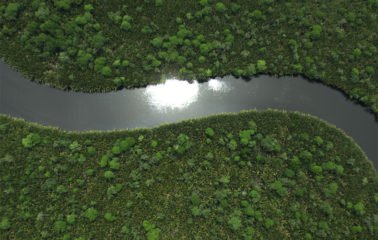
Making and implementing an environmental policy is a challenge for every government around the world, both in local and national context. Environmental issues that occurs is often caused by less than optimal the environmental policy is being implemented. The good news is that there are many exemplary environmental policies of some countries in the world and some cities in Indonesia. Let’s check it out!
- Finland: the most environmentally friendly country
Since 1999, Yale University and Columbia University in the United States has released Environmental Performance Index (EPI) annually and now it is supported by around 50 countries in the world. In 2016, the top position in EPI is Finland as the most environmentally friendly country in the world. There are many factors behind the rating, such as waste management and water quality as well as high quality of healthcare. - Sweden: lack of garbage
The country has many factory specially made for garbage treatment and transform it into 3 kind of products: fertilizer, semi-finished materials and energy of combustion. In fact, Sweden imports 800 tons of garbage every year from all over Skandinavia. However, the Swedish government mentions that they still lack of garbage. - Singapore: huge fines for littering
In this country, people who are caught on camera throwing garbage or cigarette butts carelessly will be punished to do social work in public places for 5 hours long. If the person do it repeatedly, he/she will be imposed fines amounted 19,000 Singapore Dollar or around 200 million rupiah. - France: removing diesel machine
Currently, the French government is keen to reduce pollution in many urban areas. Furthermore, they will gradually remove the use of diesel machine because it is not environmentally friendly. One of the interesting things is that the French Ministry of Energy provides bonus for its citizen in the form of environmentally friendly energy lego amounted 13,000 Dollar. - West Sulawesi: producer of renewable energy
In 1992, a scientist alumni of Faculty of Agriculture, Hasanuddin University (Unhas) Makassar conducted a research on Micro Hydro Power Generation (PLTMH). Ten years later in 2012, West Sulawesi provincial government built PLTMH in 128 villages spreading over 5 districts. Thanks to this success, the central government will set the youngest province as the province of renewable energy. - Aceh: mangrove forest as the “shield” of Veranda of Mecca
With a coastline of 1,660 kilometers, it is a challenge for the Aceh government to control the balance of ecosystem in coastal area. One of the solution is to develop fishery sector and mangrove forest preservation. After 2005 earthquake that destroyed most of the regions in Aceh, the local government continues to pursue the preservation of mangrove forests. Even now, mangrove forest in South and North coastal area is being developed into tourist destination. - Solo: Bengawan flood prevention
Since 1966, annual flood seemed to have become a tradition in the area of Bengawan Solo. To overcome this problem, East Java provincial government conducted various efforts such as dredging along 12 kilometers at the watershed (DAS), as well as providing pump water to the residents around the river to parse puddles on some critical points. Nowadays, annual flood problem in Solo already begin to be overcome. - Surabaya: city of a thousand parks
Since 2010, Surabaya has arranged itself to be more beautiful and livable. In 2013, Taman Bungkul (Bungkul Park) won the best park in Asia in the Asian Townscape Award organized by the United Nations. Currently, there are nearly 30 parks in Surabaya by increments of around 5 parks annually. - Bandung: caring for mountain garbage
Inspired by the mountains of Nepal which requires the climbers to carry 8 kilograms of garbage when they come down the mountain and if not they will be fined, a group of young men in Bandung formed Trashbag Community or Komunitas Peduli Sampang Gunung in 2011. The community managed to inspire the people to not only clean up the garbage in the mountain, but also in some areas in Bandung and its surroundings.
Those nine places mentioned above are certainly not able to get an award or recognition for “environmentally friendly” in such a short time. The ideal environmental policy is born from a long term vision combined with the government’s commitment and all elements of society. Therefore, as part of the society, we must have high awareness to continue to encourage and oversee the effective and sustainable environmental policies.




